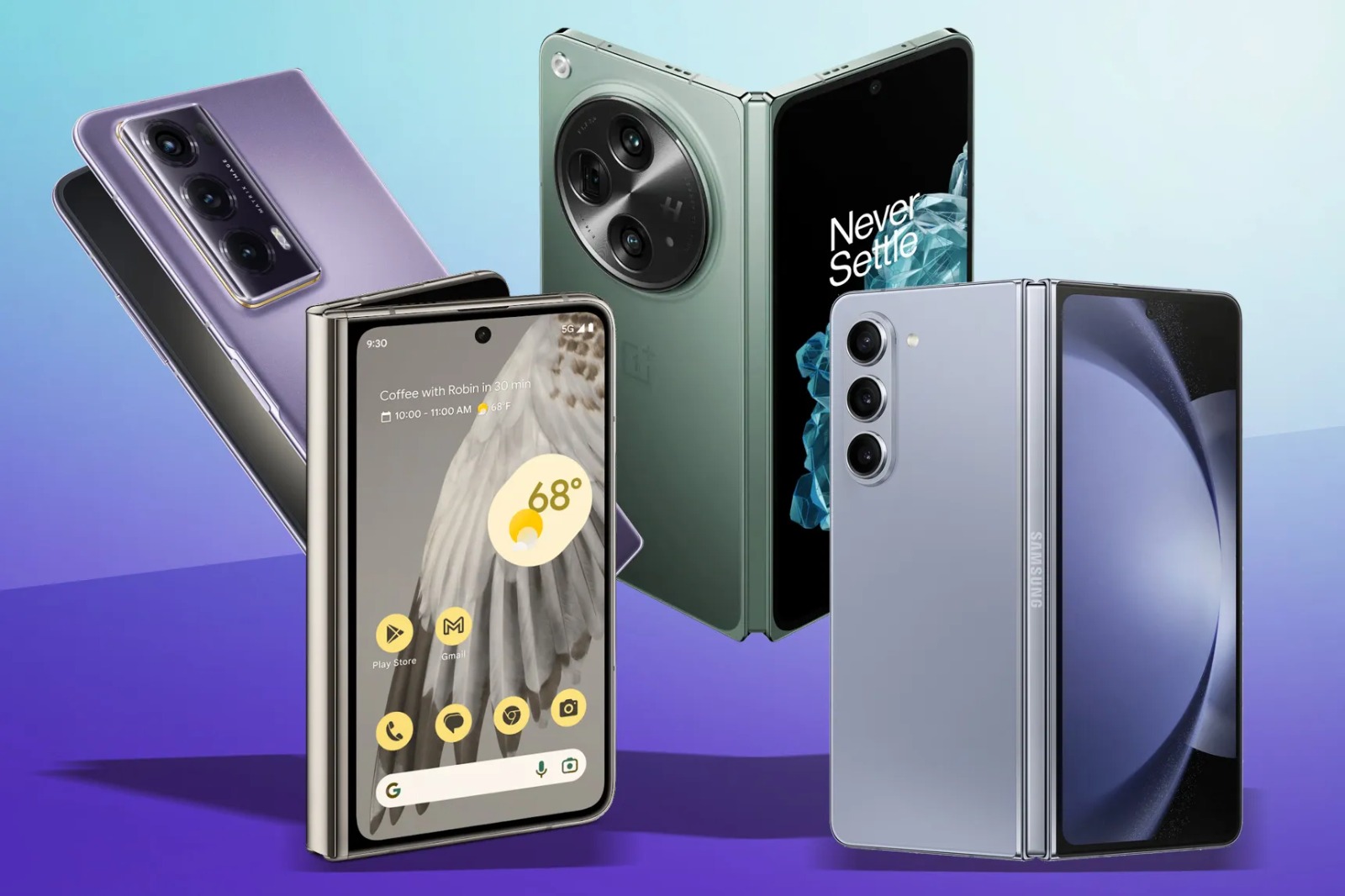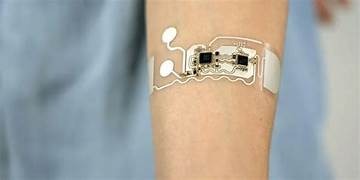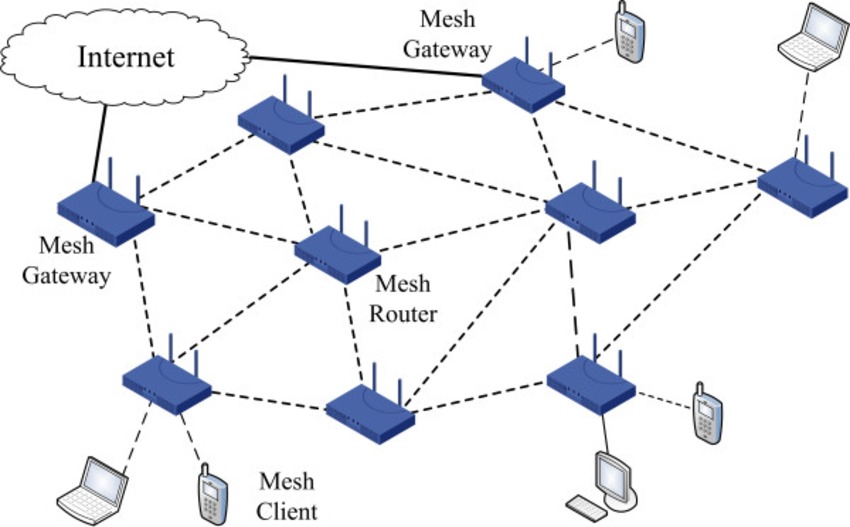
Tech for Wellness: Apps and Devices That Support Mental Health
Technology is reshaping mental health care by offering accessible tools for wellness. From meditation and therapy apps like Headspace and BetterHelp to wearable devices that monitor physical and emotional health, tech-based solutions are making mental health support more personalized and readily available. Mood tracking, sleep apps, and virtual therapy platforms help individuals manage stress, anxiety, and sleep disorders. While digital wellness tools are beneficial, they complement rather than
✨ Raghav Jain

Introduction
In today’s digital age, technology has proven to be a game-changer in virtually every aspect of life—from improving productivity to enhancing entertainment. However, one of its most powerful applications is in the realm of mental health and wellness. As the stigma around mental health continues to decrease, more people are turning to tech-based tools to support their emotional well-being.
Gone are the days when mental health care was solely about face-to-face therapy sessions. Today, smartphones, wearables, and apps are providing people with accessible and effective tools to monitor, manage, and improve their mental well-being. In this article, we’ll explore how technology has become a vital partner in supporting mental health, and we’ll dive into some of the top apps and devices available to assist in managing stress, anxiety, depression, and more. Tech for wellness has become a growing trend, with numerous apps and devices now available to support mental health, offering solutions for those looking to manage stress, anxiety, depression, and other mental health concerns. In today’s fast-paced world, technology has become an essential part of our daily lives, and many people are turning to apps and devices to provide the support they need. These tools are designed to help individuals improve their mental health by offering easy access to resources, tracking progress, and providing interventions at the touch of a button. With mental health issues becoming more widely recognized and talked about, these innovations are not only helping to bridge the gap between individuals and mental health professionals but also creating spaces for people to engage in self-care practices. Among the many options available, mindfulness apps are perhaps the most popular for those seeking peace and relaxation in a hectic world. These apps offer guided meditation sessions, breathing exercises, and tools to help users stay present, manage their thoughts, and reduce stress. Apps like Headspace and Calm provide guided meditation sessions for various purposes such as stress reduction, improving sleep, and increasing focus. By focusing on breathing, mindfulness, and relaxation, these apps create a soothing experience that helps users combat the negative effects of anxiety and stress. Similarly, meditation apps like Insight Timer offer access to thousands of free meditation tracks, designed to help with various mental health issues such as anxiety, depression, and even chronic pain. Beyond meditation apps, tech devices like fitness trackers have also gained popularity for supporting mental wellness. Fitness trackers such as Fitbit, Garmin, and the Apple Watch not only track physical activity and heart rate but also measure sleep patterns and monitor stress levels. These devices can provide valuable insights into how your body reacts to various situations and help identify triggers that may be affecting your mental health. For example, the Apple Watch includes features such as guided breathing exercises that can help reduce stress in real time. Additionally, by analyzing sleep quality and activity levels, these devices help users optimize their routines for better mental health, supporting a balanced lifestyle. Another area where technology is contributing to wellness is through virtual therapy. Apps like BetterHelp and Talkspace allow individuals to connect with licensed therapists via text, voice, or video calls, making mental health support more accessible to people who may not have time or the ability to visit a therapist in person. This technology-based approach is particularly helpful for individuals in remote areas, those with mobility challenges, or anyone looking for convenience and privacy in seeking mental health support. Virtual therapy sessions provide a level of flexibility that traditional in-person therapy may not offer, and they ensure that individuals can access professional help regardless of their location. For people dealing with stress or anxiety, tech-powered breathing tools and devices have gained attention. One such device is the Spire Stone, which tracks your breathing patterns throughout the day and provides real-time feedback on your emotional state. When it detects elevated stress levels, it alerts the user to take a deep breath, helping to calm the body’s response to stress and lower anxiety levels. Other breathing-focused devices like the Breathwrk app offer guided breathing exercises designed to reduce stress, enhance focus, and promote relaxation. This combination of real-time feedback and guided exercises makes these tools a powerful resource for anyone looking to manage their mental health in a more mindful way. For those who are seeking a more structured approach to managing mental wellness, there are also digital journaling apps that encourage emotional expression and self-reflection. Apps like Daylio and Journey provide users with a digital space to track their moods, thoughts, and experiences, which can help them gain insight into patterns and triggers. These apps often come with features such as mood tracking, customizable journals, and reminders, which encourage users to reflect on their day and practice gratitude. By writing down their thoughts and feelings, users can process emotions, set goals for improvement, and track their progress over time. Journaling is a therapeutic activity known to support mental health, and digital platforms make it easier and more convenient for individuals to engage in this practice. Sleep is another vital aspect of mental health, and technology has made significant strides in helping people improve their sleep quality. Sleep-tracking devices such as the Oura Ring and the Sleep Cycle app analyze sleep patterns and provide feedback on how to improve rest. The Oura Ring, for example, tracks factors such as heart rate variability, body temperature, and movement throughout the night to determine the quality of your sleep. The app then provides actionable insights to optimize sleep hygiene, improve rest, and manage stress more effectively. Similarly, the Sleep Cycle app tracks sleep stages and provides a smart alarm feature that wakes users up during their lightest sleep phase, helping them feel more refreshed and energized in the morning. These sleep-focused technologies are particularly useful for individuals who struggle with insomnia or other sleep-related issues, offering insights and tools to enhance both sleep quality and overall well-being. As technology continues to evolve, new tools and devices are being developed to help users take a more proactive approach to mental wellness. The integration of AI and machine learning in mental health apps is becoming more prevalent, allowing for a more personalized experience tailored to an individual’s specific needs. For instance, apps like Wysa and Replika use AI-powered chatbots to offer support and guidance, simulating conversations with a therapist or a supportive friend. These AI-driven platforms can provide immediate assistance and emotional support during moments of anxiety or distress, ensuring that users have access to help when they need it most. Additionally, AI-powered platforms can track users’ emotional states over time, offering personalized recommendations based on their emotional patterns. The role of social support cannot be overlooked in the realm of mental wellness, and technology has also played a crucial role in fostering a sense of community. Platforms such as 7 Cups offer online support groups, connecting users with trained listeners who provide emotional support in a safe and judgment-free environment. These platforms create a sense of connection for people who may feel isolated or unable to talk to someone in person. By participating in online communities, individuals can share experiences, gain perspective, and feel supported in their journey toward mental wellness. Additionally, the rise of mental health podcasts and online communities has allowed people to access resources and education on topics such as self-care, stress management, and emotional regulation. Technology has made it easier than ever for individuals to learn more about mental health and connect with others who are going through similar experiences. The intersection of technology and wellness has created an entirely new approach to supporting mental health, one that empowers individuals to take control of their well-being through digital tools and resources. By incorporating technology into their daily lives, individuals can access mental health support anytime and anywhere, making it easier to prioritize self-care and seek help when necessary. With the continuous development of new tools and features, the potential for tech to improve mental health and wellness is immense. Whether through guided meditation, fitness tracking, virtual therapy, or AI-driven support, technology is paving the way for a more inclusive and accessible approach to mental health care. By utilizing these apps and devices, individuals can not only enhance their mental wellness but also foster a deeper sense of connection with themselves and others. With the power of tech at our fingertips, we now have the tools to support our mental health and improve our quality of life in ways that were previously unimaginable.
The Role of Technology in Mental Health
Mental health challenges are a growing concern globally, with millions affected by conditions like anxiety, depression, and stress. Technology plays an integral role in breaking down barriers to mental health support, offering real-time access to mental health resources, reducing the stigma around seeking help, and creating opportunities for self-care and personal growth.
Why Tech is Transforming Mental Health Care
- Accessibility: Technology has made mental health resources available to people regardless of their location.
- Affordability: Many mental health apps and platforms are free or low-cost, making therapy and wellness accessible to a broader audience.
- Real-Time Support: Technology allows users to track and manage their mental health 24/7, offering instant access to self-help tools.
While apps and devices cannot replace professional treatment, they serve as valuable tools for maintaining mental wellness and assisting in everyday mental health management.
Apps for Mental Health: Managing Stress, Anxiety, and More
There is an overwhelming array of mental health apps available today, each designed to address different aspects of emotional well-being. From guided meditations to mood tracking, these apps are revolutionizing the way we approach mental health care.
1. Meditation and Mindfulness Apps
Mindfulness meditation has been shown to reduce stress, improve mood, and increase emotional resilience. Apps for meditation provide a range of exercises that users can practice anywhere, anytime.
Popular Meditation Apps
- Headspace: Known for its user-friendly interface and variety of guided meditation sessions for stress, sleep, and focus.
- Calm: Offers calming music, sleep stories, and guided meditation to reduce anxiety and improve sleep quality.
- Insight Timer: A free app with thousands of guided meditations, music tracks, and mindfulness exercises.
Benefits
- Reduces stress and anxiety
- Enhances focus and emotional well-being
- Improves sleep and relaxation
2. Mood and Anxiety Tracking Apps
Tracking your mood and emotions can help you identify patterns and triggers that affect your mental health. These apps help users stay on top of their mental wellness by offering daily check-ins, journal prompts, and stress-relief techniques.
Popular Mood Tracking Apps
- Moodpath: Tracks mood patterns and offers personalized mental health assessments to help users understand their emotional well-being.
- Daylio: A micro-diary app that lets users track their mood and activities, providing insights into what affects their emotions.
- WorryWatch: Helps track anxious thoughts, providing users with insights into how often they worry and how they can manage those thoughts.
Benefits
- Provides insights into mood patterns
- Offers coping strategies for anxiety and stress
- Encourages self-awareness and reflection
3. Therapy and Counseling Apps
For those seeking professional support, online therapy apps connect users with licensed therapists who provide therapy through video, chat, or audio calls. These platforms have made mental health support more accessible to individuals who may not have access to in-person therapy due to location, time constraints, or cost.
Popular Therapy Apps
- BetterHelp: Offers online therapy with licensed counselors, available via messaging, calls, and video sessions.
- Talkspace: Connects users with licensed therapists who provide counseling via text, video, or audio messages.
- 7 Cups: Provides free online chat support with trained listeners and affordable online therapy sessions.
Benefits
- Provides easy access to professional therapy
- Offers a confidential space for people to express their feelings
- Enables flexible therapy sessions, fitting around personal schedules
Wearable Devices for Mental Health: The Power of Tech on Your Wrist
Wearable devices, especially smartwatches, have become popular tools for improving physical fitness, but their role in mental health is just as important. These devices can track stress levels, monitor sleep patterns, and remind users to take breaks—all of which contribute to a healthier mental state.
1. Smartwatches for Stress Monitoring
Many modern smartwatches feature built-in sensors to monitor physical signs of stress, such as heart rate variability, and can notify users when their stress levels are high.
Popular Smartwatches for Mental Health
- Apple Watch: Offers a “Breathe” app to guide deep breathing exercises, stress management features, and the ability to track heart rate variability.
- Fitbit: Tracks stress and offers breathing exercises through its Relax feature, providing users with real-time feedback on their mental state.
- Garmin: Features stress tracking and offers guided breathing exercises to help manage stress levels.
Benefits
- Tracks real-time stress levels
- Provides personalized tips for reducing stress
- Encourages mindful breathing and relaxation
2. Fitness Trackers for Sleep and Activity
Maintaining a healthy lifestyle plays a crucial role in managing mental health, and wearable fitness trackers make it easier to monitor sleep, exercise, and physical activity.
Popular Fitness Trackers
- Oura Ring: Tracks sleep quality, activity levels, and body temperature to provide insights into overall wellness.
- Whoop Strap: Monitors recovery, strain, and sleep to ensure a balanced lifestyle and prevent burnout.
Benefits
- Improves sleep quality
- Encourages physical activity and movement
- Tracks overall well-being and mental health
Digital Detox: Tools to Help Disconnect
While technology can support mental health, it’s important to balance screen time with periods of disconnection. Some apps and devices can help users take breaks from their devices and practice a digital detox.
Apps to Limit Screen Time
- Forest: Encourages users to focus by planting a virtual tree that grows as long as the user stays off their phone.
- Focus@Will: Provides productivity music to help users concentrate, while also limiting the time spent on non-essential apps.
Benefits
- Reduces digital fatigue and stress
- Encourages mindfulness and presence
- Helps create healthier boundaries with technology
Conclusion
Technology has undeniably become a cornerstone of mental health support, offering a wide array of apps and devices that empower users to manage stress, monitor their emotions, and access professional care. From meditation apps to smartwatches that track stress levels, these tools have made it easier than ever to prioritize mental wellness.
However, while technology is an excellent supplement to mental health care, it’s important to strike a balance. No app or device can replace professional therapy or face-to-face support. The key is to use these tools mindfully, alongside other traditional methods of self-care and professional help.
As tech continues to evolve, it will likely offer even more innovative solutions to support mental health, making it more accessible and effective for everyone. Start integrating these tools into your daily routine today, and take one step closer to a healthier mind.
Q&A Section
1. How has technology evolved to support mental health?
Ans:- Technology has transformed mental health care by providing easy access to mental wellness tools. Apps and wearable devices now allow people to track their emotions, practice mindfulness, and access professional help, making mental health support more accessible and personalized.
2. What are some of the most popular apps for mental health?
Ans:- Popular apps include Calm, Headspace, and BetterHelp. These apps offer guided meditation, stress management techniques, therapy sessions, and mental wellness resources to help individuals manage their emotions and mental health more effectively.
3. How do apps help with anxiety and stress management?
Ans:- Apps like Calm and Headspace offer guided meditations, deep breathing exercises, and mindfulness practices that reduce anxiety and stress. They help users develop coping strategies, improve focus, and promote relaxation, all at the touch of a button.
4. How do wearable devices support mental health?
Ans:- Wearable devices like Fitbit, Apple Watch, and Whoop track physical activity, sleep patterns, and heart rate variability, which are indicators of mental health. These devices help users monitor stress levels, get enough rest, and engage in physical activities that improve overall well-being.
5. What role do virtual therapy platforms play in mental health care?
Ans:- Virtual therapy platforms like BetterHelp and Talkspace connect users with licensed therapists for online counseling. This eliminates the barriers of distance and scheduling, making professional mental health care more convenient and accessible.
6. How do mood tracking apps benefit mental wellness?
Ans:- Mood tracking apps like Moodpath and Daylio help users log their emotions, identify triggers, and track their mental health over time. This data can be used to adjust coping strategies and provide insights for conversations with therapists or counselors.
7. Are there any apps or devices that help with sleep-related issues?
Ans:- Yes, apps like Sleep Cycle and devices like the Oura Ring track sleep patterns, provide insights into sleep quality, and offer suggestions for improving sleep hygiene. These tools help people struggling with insomnia or poor sleep quality to get better rest and improve their mental health.
8. Can digital wellness tools replace traditional therapy?
Ans:- While digital wellness tools provide support and can be effective in managing mild symptoms, they cannot replace traditional therapy. Professional therapy offers a deeper, personalized approach to mental health care, especially for individuals dealing with severe mental health conditions.
9. How does tech-based therapy help individuals in remote areas?
Ans:- Technology bridges the gap for people living in remote or underserved areas, where access to mental health professionals may be limited. Through virtual therapy platforms and mental health apps, individuals can receive therapy, support, and resources without needing to travel to urban centers.
10. What does the future of mental health technology look like?
Ans:- The future of mental health tech includes more personalized solutions, such as AI-driven therapy, virtual reality stress relief experiences, and advanced tracking systems that integrate with wearable devices. These innovations promise to provide more accessible, efficient, and tailored mental health care.
Similar Articles
Find more relatable content in similar Articles

Foldable Screens in 2025: Are ..
Foldable screens have finally .. Read More

Wearable Health Sensors: The D..
Wearable health sensors are re.. Read More

Why Mesh Networks Might Replac..
Mesh networks are transforming.. Read More

How Blockchain Is Reinventing ..
Blockchain is transforming cyb.. Read More
Explore Other Categories
Explore many different categories of articles ranging from Gadgets to Security
Smart Devices, Gear & Innovations
Discover in-depth reviews, hands-on experiences, and expert insights on the newest gadgets—from smartphones to smartwatches, headphones, wearables, and everything in between. Stay ahead with the latest in tech gear
Apps That Power Your World
Explore essential mobile and desktop applications across all platforms. From productivity boosters to creative tools, we cover updates, recommendations, and how-tos to make your digital life easier and more efficient.
Tomorrow's Technology, Today's Insights
Dive into the world of emerging technologies, AI breakthroughs, space tech, robotics, and innovations shaping the future. Stay informed on what's next in the evolution of science and technology.
Protecting You in a Digital Age
Learn how to secure your data, protect your privacy, and understand the latest in online threats. We break down complex cybersecurity topics into practical advice for everyday users and professionals alike.
© 2025 Copyrights by rTechnology. All Rights Reserved.